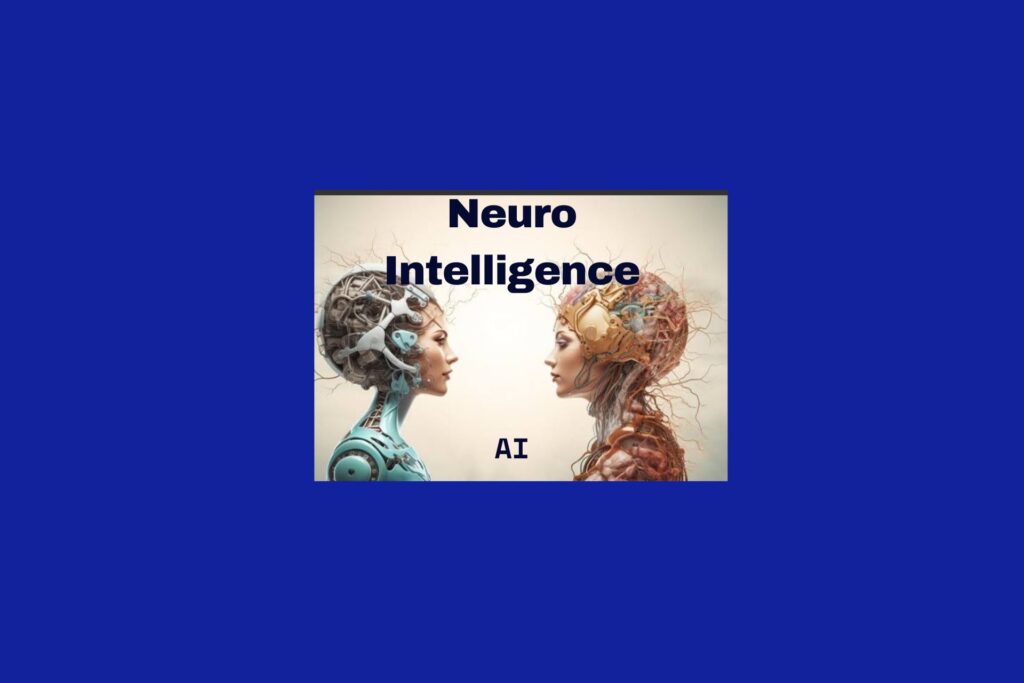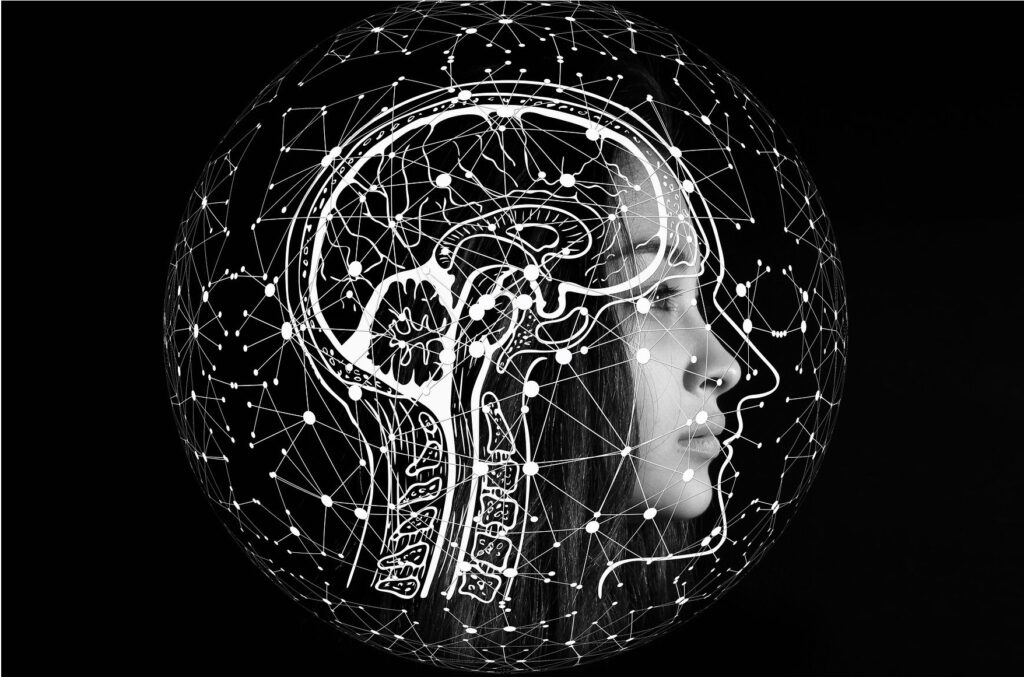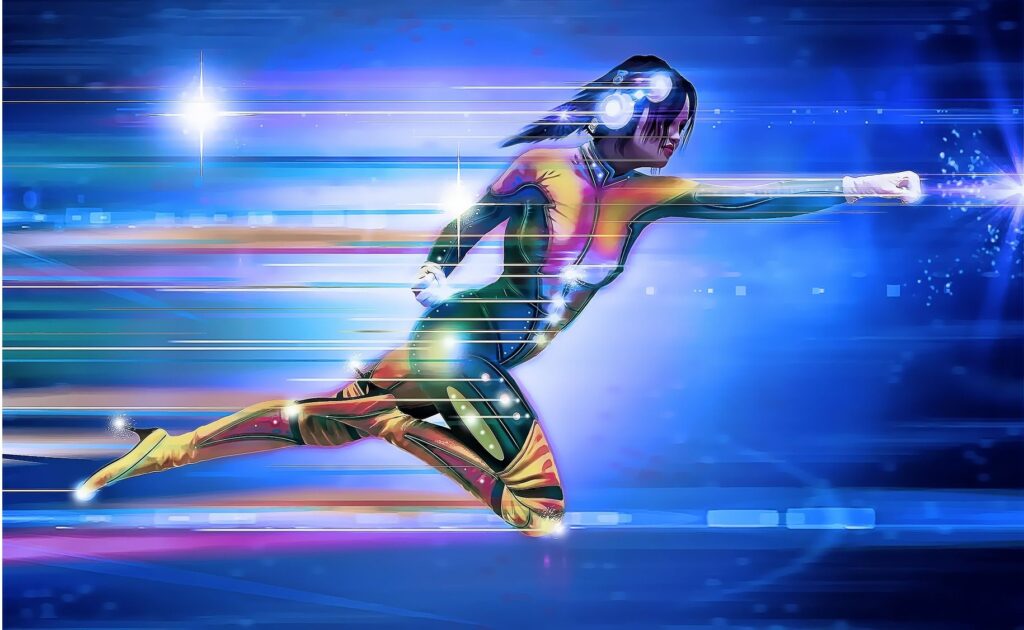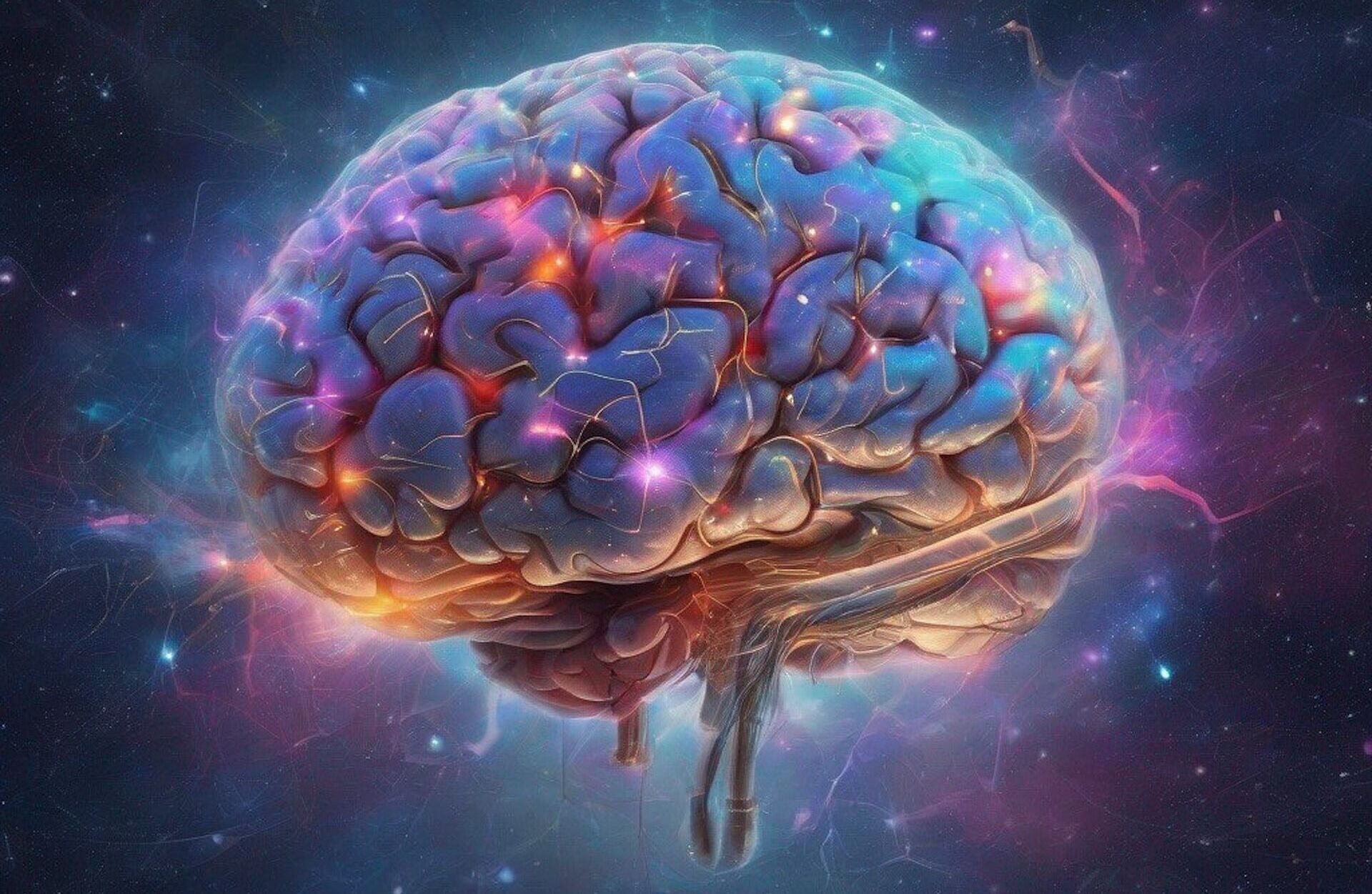Unraveling the Synergy of Neuro-Intelligence and AI: Unlocking the Future of Cognitive Computing in 2024 :
Introduction:
“Unraveling the Synergy of Neuro-Intelligence and AI: Unlocking the Future of Cognitive Computing in 2024”
In the realm of artificial intelligence (AI), the integration of neuroscience principles has sparked a paradigm shift, leading to the emergence of neuro-intelligence. This fusion leverages insights from the human brain to enhance AI systems, resulting in more robust, adaptive, and human-like cognitive capabilities. As we delve into the convergence of neurology and AI, we uncover a landscape brimming with possibilities, reshaping industries, and revolutionizing the way we interact with technology.
Unraveling the Synergy of Neuro-Intelligence and AI:

Understanding Neuro-Intelligence:
Unraveling the Synergy of Neuro-Intelligence and AI: Neuro-intelligence, at its core, is the amalgamation of neuroscience and artificial intelligence. It draws inspiration from the intricate workings of the human brain, mimicking its neural networks, synaptic connections, and learning mechanisms. By emulating these biological processes, AI systems equipped with neuro-intelligence can replicate human-like cognition, perception, and decision-making.
Neuroscience serves as a guiding beacon in this journey, unraveling the mysteries of the brain’s architecture, neurochemical signaling, and cognitive functions. Researchers delve into the complexities of neural circuits, studying how neurons communicate, form patterns, and adapt over time. This wealth of knowledge provides a blueprint for designing AI algorithms that emulate the brain’s information processing prowess. Unraveling the Synergy of Neuro-Intelligence and AI: Unlocking the Future of Cognitive Computing in 2024
Applications of Neuro-Intelligence:
“Unraveling the Synergy of Neuro-Intelligence and AI: Unlocking the Future of Cognitive Computing in 2024”
The integration of neuro-intelligence has catalyzed breakthroughs across various domains, transcending traditional AI limitations. In healthcare, neuro-inspired algorithms analyze medical imaging data with unparalleled accuracy, aiding in early disease detection and personalized treatment plans. These systems can interpret subtle nuances in images, akin to how the human brain discerns patterns and anomalies.
Furthermore, neuro-intelligence fuels advancements in natural language processing (NLP) and human-computer interaction. AI chatbots and virtual assistants equipped with neuro-inspired algorithms comprehend context, tone, and sentiment, fostering more meaningful interactions with users. These systems adapt to user preferences and refine responses over time, mirroring the iterative learning process of the human brain .Unraveling the Synergy of Neuro-Intelligence and AI: Unlocking the Future of Cognitive Computing in 2024
In finance, neuro-intelligent algorithms analyze market trends, risk factors, and investor sentiment to make informed decisions in real-time. By leveraging neural network architectures, these systems identify complex patterns in financial data, predicting market fluctuations with enhanced accuracy. Such predictive capabilities empower traders and financial institutions to navigate volatile markets with greater confidence.
Challenges and Ethical Considerations:
Unraveling the Synergy of Neuro-Intelligence and AI: Unlocking the Future of Cognitive Computing in 2024 Unraveling the Synergy of Neuro-Intelligence and AI: Despite its transformative potential, the integration of neuro-intelligence and AI presents inherent challenges and ethical considerations. One such challenge is the interpretability of neuro-inspired algorithms. As these systems mimic the brain’s complex computations, understanding their decision-making processes becomes increasingly elusive. Ensuring transparency and accountability in AI decision-making is paramount to building trust and mitigating potential biases.
Moreover, the ethical implications of neuro-enhancement technologies raise profound questions about privacy, consent, and autonomy. The advent of brain-computer interfaces (BCIs) blurs the boundaries between the mind and machine, enabling direct communication between neural signals and external devices. While BCIs hold promise for medical applications and assistive technologies, they also raise concerns about cognitive privacy and potential misuse.
Furthermore, the ethical use of neuro-intelligence in surveillance and predictive policing necessitates careful consideration of societal values and human rights. The deployment of AI systems equipped with neuro-inspired algorithms for behavioral analysis raises concerns about individual autonomy, freedom of expression, and the right to privacy. Striking a balance between technological innovation and ethical governance is essential to harnessing the full potential of neuro-intelligence responsibly. Unraveling the Synergy of Neuro-Intelligence and AI: Unlocking the Future of Cognitive Computing in 2024
Unraveling the Synergy of Neuro-Intelligence and AI: Unlocking the Future of Cognitive Computing in 2024:
Exploring the Transformative Impact of Neuro-Intelligence and AI on Humanity

“Unraveling the Synergy of Neuro-Intelligence and AI: Unlocking the Future of Cognitive Computing in 2024”
In the ever-evolving landscape of technology, the convergence of neuro-intelligence and artificial intelligence (AI) heralds a new era of innovation and transformation. This symbiotic relationship between neuroscience-inspired algorithms and advanced AI systems is reshaping the way humans interact with technology, revolutionizing industries, and redefining the human experience. As we delve into the profound implications of this synergy, we unravel the multifaceted impact of neuro-intelligence and AI on humanity.
Enhanced Healthcare and Personalized Medicine:
Unraveling the Synergy of Neuro-Intelligence and AI: Unlocking the Future of Cognitive Computing in 2024 One of the most significant impacts of neuro-intelligence and AI on humanity lies in healthcare and personalized medicine. By leveraging insights from neuroscience, AI-powered systems analyze vast amounts of medical data with unprecedented accuracy, enabling early disease detection, precise diagnosis, and tailored treatment plans. Neuro-inspired algorithms decipher complex patterns in medical imaging, genetic data, and patient records, empowering healthcare professionals to make informed decisions and improve patient outcomes.
Moreover, AI-driven predictive analytics anticipate disease progression and identify individuals at high risk, facilitating preventive interventions and proactive healthcare management. From cancer diagnosis to neurological disorders, the integration of neuro-intelligence and AI augments medical research, accelerates drug discovery, and fosters a paradigm shift towards personalized and precision medicine, thereby improving people’ quality of life across the globe. Unraveling the Synergy of Neuro-Intelligence and AI: Unlocking the Future of Cognitive Computing in 2024
Empowering Education and Lifelong Learning:
The impact of neuro-intelligence and AI extends beyond the realms of healthcare, permeating into education and lifelong learning. Neuro-inspired algorithms optimize learning experiences, adapting curriculum content and teaching methodologies to individual cognitive profiles and learning styles. AI-powered educational platforms leverage personalized feedback and adaptive learning pathways, catering to diverse learner needs and fostering mastery-based progression.
Unraveling the Synergy of Neuro-Intelligence and AI: Unlocking the Future of Cognitive Computing in 2024 Furthermore, virtual tutors and educational assistants equipped with neuro-intelligence enhance student engagement, comprehension, and retention through interactive dialogue, real-time feedback, and personalized recommendations. As AI continues to evolve, it holds the promise of democratizing access to quality education, bridging socioeconomic disparities, and empowering individuals to unlock their full potential, regardless of geographical or socio-economic constraints.
Transformative Impact on the Workforce and Economy:
The integration of neuro-intelligence and AI is reshaping the workforce landscape, revolutionizing industries, and redefining traditional job roles. AI-driven automation and robotics optimize repetitive tasks, streamline workflows, and augment human capabilities, leading to greater efficiency, productivity, and innovation across various sectors. Neuro-inspired algorithms enhance human-machine collaboration, enabling seamless interaction and shared decision-making in complex problem-solving scenarios. Unraveling the Synergy of Neuro-Intelligence and AI: Unlocking the Future of Cognitive Computing in 2024
Moreover, AI-powered predictive analytics and data-driven insights inform strategic decision-making, resource allocation, and market forecasting, driving business growth and competitiveness in the global economy. While AI-driven automation disrupts traditional employment models, it also creates new opportunities for skills development, entrepreneurship, and creative innovation. As humanity navigates the Fourth Industrial Revolution, the fusion of neuro-intelligence and AI catalyzes a transformative shift towards a knowledge-based economy, where adaptability, creativity, and lifelong learning are the cornerstones of success.
Ethical Considerations and Societal Implications:

Despite its transformative potential, the integration of neuro-intelligence and AI raises profound ethical considerations and societal implications. The advent of AI-driven surveillance, facial recognition, and predictive policing algorithms challenges fundamental principles of privacy, civil liberties, and human rights. The proliferation of neuro-enhancement technologies, such as brain-computer interfaces (BCIs), blurs the boundaries between the mind and machine, raising concerns about cognitive privacy, autonomy, and consent.
Moreover, the ethical use of AI in decision-making processes, healthcare delivery, and resource allocation necessitates transparency, accountability, and equitable access to technology. Addressing algorithmic biases, mitigating socio-economic disparities, and safeguarding against algorithmic discrimination are imperative to ensuring the responsible deployment of neuro-intelligence and AI for the betterment of humanity.
Conclusion:
“Unraveling the Synergy of Neuro-Intelligence and AI: Unlocking the Future of Cognitive Computing in 2024”
In conclusion, the transformative impact of neuro-intelligence and AI on humanity transcends technological innovation, reshaping every facet of our lives. From healthcare and education to workforce automation and economic development, the convergence of neuroscience-inspired algorithms and advanced AI systems unlocks new frontiers of possibility, empowering individuals, enriching societies, and redefining the human experience. As we navigate the complexities of this symbiotic relationship, fostering ethical governance, equitable access, and responsible innovation is paramount to harnessing the full potential of neuro-intelligence and AI for the benefit of all.
Future Directions:
“Unraveling the Synergy of Neuro-Intelligence and AI: Unlocking the Future of Cognitive Computing in 2024”
As we chart the course ahead, the fusion of neuro-intelligence and AI paves the way for transformative advancements in cognitive computing. From healthcare and finance to education and beyond, the integration of neuroscience principles enhances AI systems’ adaptability, resilience, and human-like cognition. By unraveling the mysteries of the human brain, we unlock new frontiers of innovation, shaping a future where man and machine coexist harmoniously, ushering in an era of unprecedented progress and possibility.
FAQ:
Q1.- What is the difference between AI and neural intelligence?
ANS-A more general branch of study devoted to developing intelligent computers capable of carrying out tasks requiring human-like intellect is artificial intelligence (AI). Neural networks are a subset of AI, representing a particular architecture inspired by the human brain.
Q2.- What is neuro system in AI?
ANS-An artificial intelligence technique called a neural network trains computers to process information in a manner similar to that of the human brain. Deep learning is a kind of machine learning technique that uses networked nodes or neurons arranged in a layered pattern to mimic the organization of the human brain.
Q3.- Is AI Smarter Than human intelligence?
ANS-We must first comprehend what artificial intelligence (AI) is in order to respond to it. Even the typical human being is significantly more intelligent than artificial intelligence (AI), which is still in its infancy. But as computer science advances, new algorithms are constantly improving AI’s intelligence.

